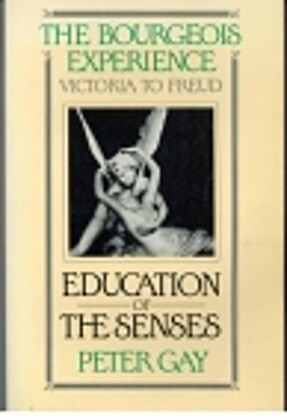

This was, essentially, the culture into which Gay was born, in Berlin, as Peter Joachim Fröhlich, the son of Helga and Moritz, a small businessman of left-leaning views and liberal habits of mind.

But taken together, they are a fundamental text for anyone who wishes to understand bourgeois culture in the 19th and early 20th centuries. The books are full of obscure and often surprising information, most notably about bourgeois sexuality, which he argued, with a wealth of examples drawn from diaries and letters of the time, was far from being as prudish as popular memory imagined.Ĭovering subjects as varied as love and marriage, art collecting and connoisseurship, attitudes to crime and deviance (dealt with in a pathbreaking volume on The Cultivation of Hatred), literature and much more besides, the volumes can be criticised for omitting such central preoccupations and pastimes as politics, music, respectability and so on.

In his encyclopedic The Bourgeois Experience: Victoria to Freud (five volumes between 19), Gay explored in wonderfully readable prose a wide range of aspects of the European – especially the British, French and German – and the North American middle classes in their heyday. "synopsis" may belong to another edition of this title.The first volume, subtitled The Rise of Modern Pagansim, of Peter Gay’s massive study, was widely acclaimed far beyond the academic world Ultimately, they exploded in the First World War. "By gathering up communities of insiders," Professor Gay writes, the Victorians "discovered-only too often invented-a world of strangers beyond the pale, of individuals and classes, races and nations it was perfectly proper to debate, patronize, ridicule, bully, exploit, or exterminate." The aggressions so channeled or bottled could not be contained forever. We discover the multiple ways in which the nineteenth century at once restrained aggressive behavior and licensed it.Īggression split the social universe into insiders and outsiders. Gay's search through middle-class Victorian culture, illuminated by lively portraits of such daunting figures as Bismarck, Darwin and his acolytes, George Eliot, and the great satirists Daumier and Wilhelm Busch, covers a vast terrain: the relations between men and women, wit, demagoguery, and much more. With the same sweep, authority, and originality that marked his best-selling Freud: A Life for Our Time, Peter Gay here takes us on a remarkable journey through middle-class Victorian culture.


 0 kommentar(er)
0 kommentar(er)
